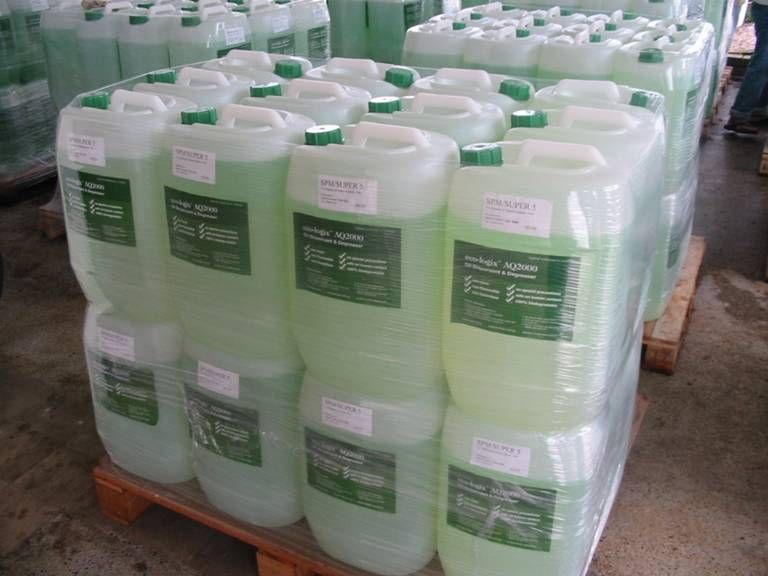It looks like you're using an Ad Blocker.
Please white-list or disable AboveTopSecret.com in your ad-blocking tool.
Thank you.
Some features of ATS will be disabled while you continue to use an ad-blocker.
5
share:
Fishermen Report Illness From BP Chemicals
More and more stories about sick fishermen are beginning to surface after the oil spill in the Gulf of Mexico.
The fishermen are working out in the Gulf -- many of them all day, every day -- to clean up the spill. They said they blame their ailments on the chemicals that BP is using.
One fisherman said he felt like he was going to die over the weekend.
"I've been coughing up stuff," Gary Burris said. "Your lungs fill up."
The article continues:
Marine toxicologist Riki Ott said the chemicals used by BP can wreak havoc on a person's body and even lead to death.
"The volatile, organic carbons, they act like a narcotic on the brain," Ott said. "At high concentrations, what we learned in Exxon Valdez from carcasses of harbor seals and sea otters, it actually fried the brain, (and there were) brain lesions."
The EPA was so concerned they did this:
EPA demands less-toxic dispersant from BP within 24 hours
The Environmental Protection Agency informed BP officials late Wednesday that the company has 24 hours to choose a less-toxic form of chemical dispersants to break up its oil spill in the Gulf of Mexico, according to government sources familiar with the decision, and must apply the new form of dispersants within 72 hours of submitting the list of alternatives.
The move is significant, because it suggests federal officials are now concerned that the unprecedented use of chemical dispersants could pose a significant threat to the Gulf of Mexico's marine life. BP has been using two forms of dispersants, Corexit 9500A and Corexit 9527A, and so far has applied 600,000 gallons on the surface and 55,000 underwater.
"Dispersants have never been used in this volume before," said an administration official who spoke on the condition of anonymity because the decision hasn't been formally announced. "This is a large amount of dispersants being used, larger amounts than have ever been used, on a pipe that continues to leak oil and that BP is still trying to cap."
[edit on 20-5-2010 by loam]
A lot of paranoid ATS'rs have been saying the big oil companies are out to get us all... I always thought they were just ignorant... BUT how could
BP NOT KNOW what effects that this stuff would have on people and animals... and they stick it in the water anyways?!?!
I also thought maybe someone sabotauged BP because they are one of the main companies funding solar and wind power... guess i'm wrong tho. Maybe BP really is out to get us Their gas stations are getting my pockets
I believe the story though, how can chemicals that are powerful enough to mix up oil in/on water not affect other life? These people should be sued for killing not only marine life (that will soon begin to float upwards) but for killing the Humans who thrive off of the animals in these waters.
Humanity has forgot our own humanity. We are up the wrong creek WITH a paddle... we just didnt anticpiate the current to be so strong!
I also thought maybe someone sabotauged BP because they are one of the main companies funding solar and wind power... guess i'm wrong tho. Maybe BP really is out to get us Their gas stations are getting my pockets
I believe the story though, how can chemicals that are powerful enough to mix up oil in/on water not affect other life? These people should be sued for killing not only marine life (that will soon begin to float upwards) but for killing the Humans who thrive off of the animals in these waters.
Humanity has forgot our own humanity. We are up the wrong creek WITH a paddle... we just didnt anticpiate the current to be so strong!
I live 220 miles north of the coast. Is it possible for those fumes and nastiness to be brought this far inland by the wind? I know the leak is like
160 miles offshore, but we had wind gusts of up to 40 mph today, directly from the south. I don't want to have to evacuate. Surely that wouldn't be
necessary so far inland?!
new topics
-
Outgoing Lame Duck BIDEN Officials and Democrats Voice Their Regrets.
2024 Elections: 2 hours ago -
Reflections of Elections past
US Political Madness: 4 hours ago -
President Carter has passed
Mainstream News: 7 hours ago -
Get Reday - Here comes the Bird Flu Pandemic - Millions are Notified
Diseases and Pandemics: 7 hours ago -
2 Guys die hunting Bigfoot
Cryptozoology: 8 hours ago -
Joe Rogan and The Black Keys Diorama
General Entertainment: 9 hours ago
5

